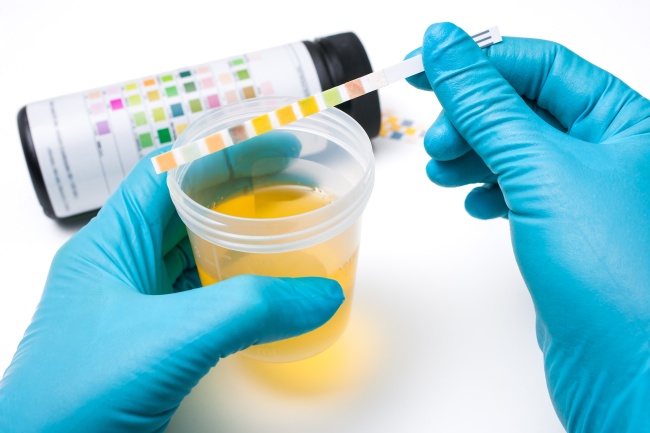More than half of teenagers on probation have STI: data
By Bak Se-hwanPublished : Oct. 12, 2017 - 15:45
Around 56 percent of South Korean teenagers who are put on juvenile probation have at least one sexually transmitted infection, a new medical study shows Thursday.

The study, released Thursday by Hallym University Kangnam Sacred Heart Hospital in Seoul, is based on a urinalysis test in 2014 of 237 teenagers, aged from 12 to 19, who were on supervised probation or at a youth detention for juvenile offenses.
According to the researchers, 56.1 percent, or 133 teenagers, tested positive for at least one STI, while 35.5 percent, or 54, were infected with two or more infections.
Around 9.2 percent (14) and 3.3 percent (5) of the participants tested positive for more than three and four infections respectively, the result shows.
Infections with ureaplasma parvum were the most common type among the infected group, at 24.1 percent, followed by mycoplasma hominis at 17.3 percent, chlamydia trachomatis at 13.9 percent and trichomonas vaginalis at 0.8 percent.
Only 1.7 percent tested gonococcal infections, while 0.8 percent had syphilis. No participants tested positive for HIV.
Their symptoms include discomfort and pain when urinating for both men and women, and in some cases blood in the urine or semen.
If not treated properly, the urethritis can lead to long-term damage to the urethra, causing infertility.
Out of the infected and non-infected groups, 64.1 percent of them said they experienced sexual relations, in which only 27.5 percent said they used condoms.
“Most of the infected teenagers at probation centers have no knowledge of such bacteria and viruses and don’t even realize that they are infected,” said professor Lee Jae-gap of the university’s research team who led the survey.
“New measures are needed to curb the cases of HIV infection spread through young people,” Lee said.
The study was published in the November 2017 issue of the Journal of Korean Medical Science.
By Bak Se-hwan (sh@heraldcorp.com)








![[Graphic News] More Koreans say they plan long-distance trips this year](http://res.heraldm.com/phpwas/restmb_idxmake.php?idx=644&simg=/content/image/2024/04/17/20240417050828_0.gif&u=)
![[KH Explains] Hyundai's full hybrid edge to pay off amid slow transition to pure EVs](http://res.heraldm.com/phpwas/restmb_idxmake.php?idx=644&simg=/content/image/2024/04/18/20240418050645_0.jpg&u=20240419100350)





![[From the Scene] Monks, Buddhists hail return of remains of Buddhas](http://res.heraldm.com/phpwas/restmb_idxmake.php?idx=652&simg=/content/image/2024/04/19/20240419050617_0.jpg&u=20240419175937)

![[KH Explains] Hyundai's full hybrid edge to pay off amid slow transition to pure EVs](http://res.heraldm.com/phpwas/restmb_idxmake.php?idx=652&simg=/content/image/2024/04/18/20240418050645_0.jpg&u=20240419100350)

![[Today’s K-pop] Illit drops debut single remix](http://res.heraldm.com/phpwas/restmb_idxmake.php?idx=642&simg=/content/image/2024/04/19/20240419050612_0.jpg&u=)